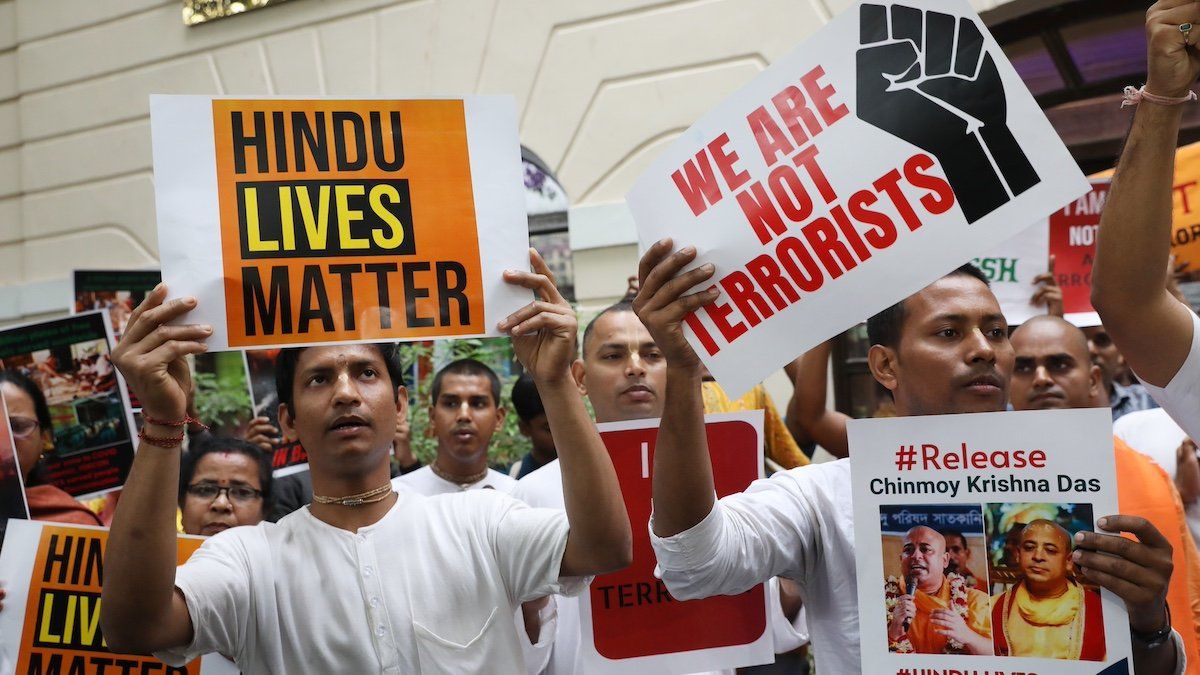Anger in India over mistreatment of Bangladesh’s Hindu minority could spark a trade war. India’s ruling Hindu nationalist Bharatiya Janata Party has threatened to impose a five-day trade embargo against Bangladesh unless anti-Hindu violence ceases by next week, and possibly for “an indefinite period” in 2025. Some Indian businesses have already stopped exporting to Bangladesh, and Indian hospitals are reportedly refusing Bangladeshi patients.
Why the threats? Violence erupted last week after the arrest in Bangladesh of Hindu monk Krishna Das Prabhu on sedition charges followingprotests Prabhu led against anti-Hindu discrimination. Prabhu’s supporters stormed the Bangladeshi consulate in Agartala on Monday and reportedly hacked a Muslim lawyer to death in Chattogram.
Hindus constitute less than 10% of Bangladesh’s 170-million-strong population and have long claimeddiscrimination and violence from the Muslim majority. Attacks intensified after former Prime Minister Sheikh Hasinafled Dhaka in August following violent anti-government uprisings. On Wednesday, in her first public address since then, Hasina accused interim leader Muhammad Yunus of genocide.
What’s the issue for India? An ally of Indian Prime Minister Narendra Modi,Hasina now lives in exile in India, complicating Delhi’s relationship with the new Bangladeshi administration. Bangladesh is a key ally for India’s border security, particularly in the northeastern states where armed insurgents frequently cross the border to escape local authorities.
